Military Science
UNC Pembroke's Army ROTC program, offered through the Department of Military Science, prepares students to become confident, capable leaders in the U.S. Army, Army Reserve or National Guard. Through hands-on training, academic support and leadership development, cadets gain the tools to excel both in military service and civilian life — while completing their college degree.
Program Overview
The objectives of the Army ROTC Program are to attract, motivate and prepare selected
students to serve as commissioned officers in the active or reserve components of
the Army; to provide a practical understanding of the concepts and principles of military
science; to develop a strong sense of duty, honor and country; to promote teamwork
and individual fitness; and to develop an understanding of and appreciation for international
relations and national security. Attainment of these objectives prepares students
for commissioning and establishes a solid foundation for their professional development
and effective performance in the uniformed services or in civilian enterprises.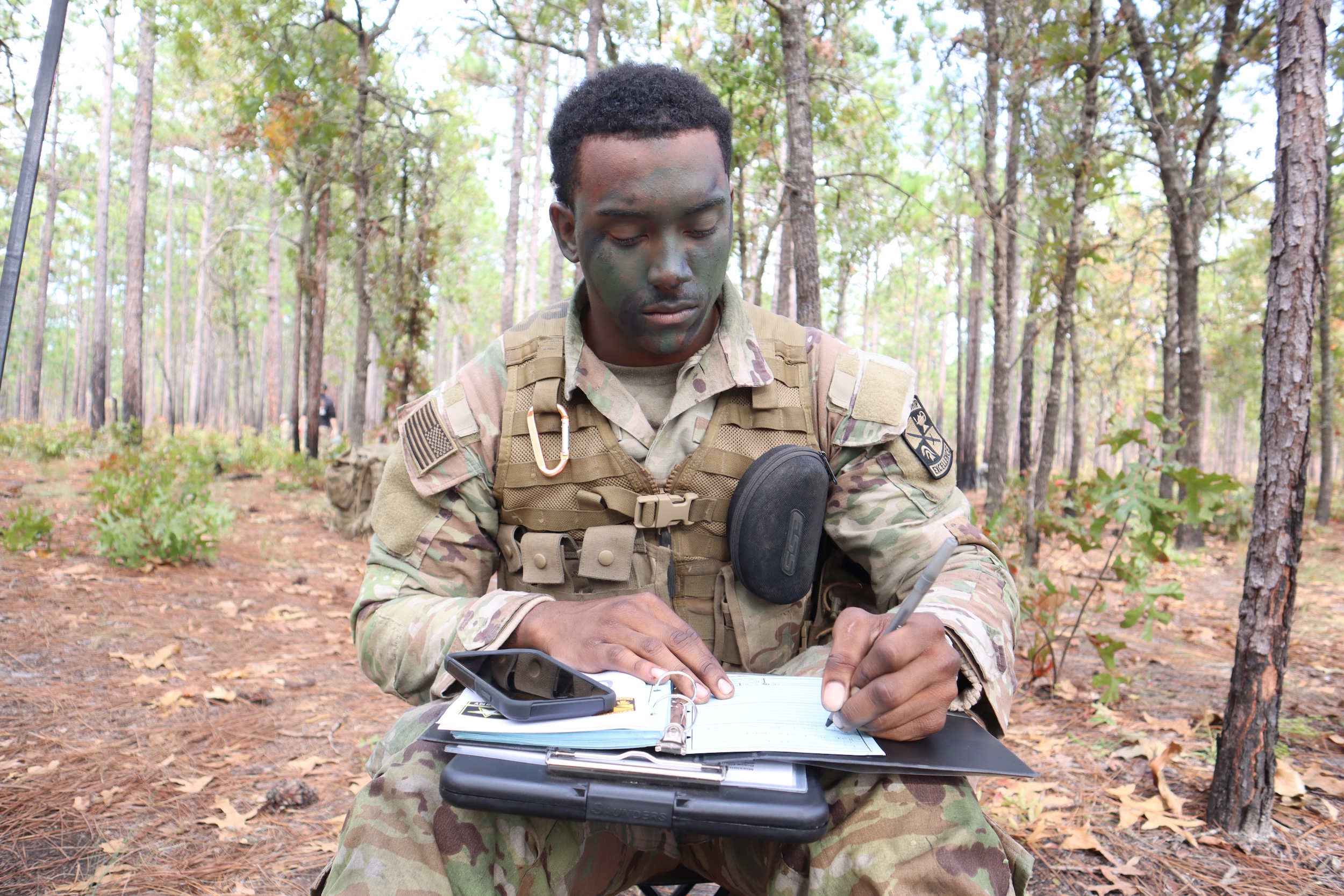
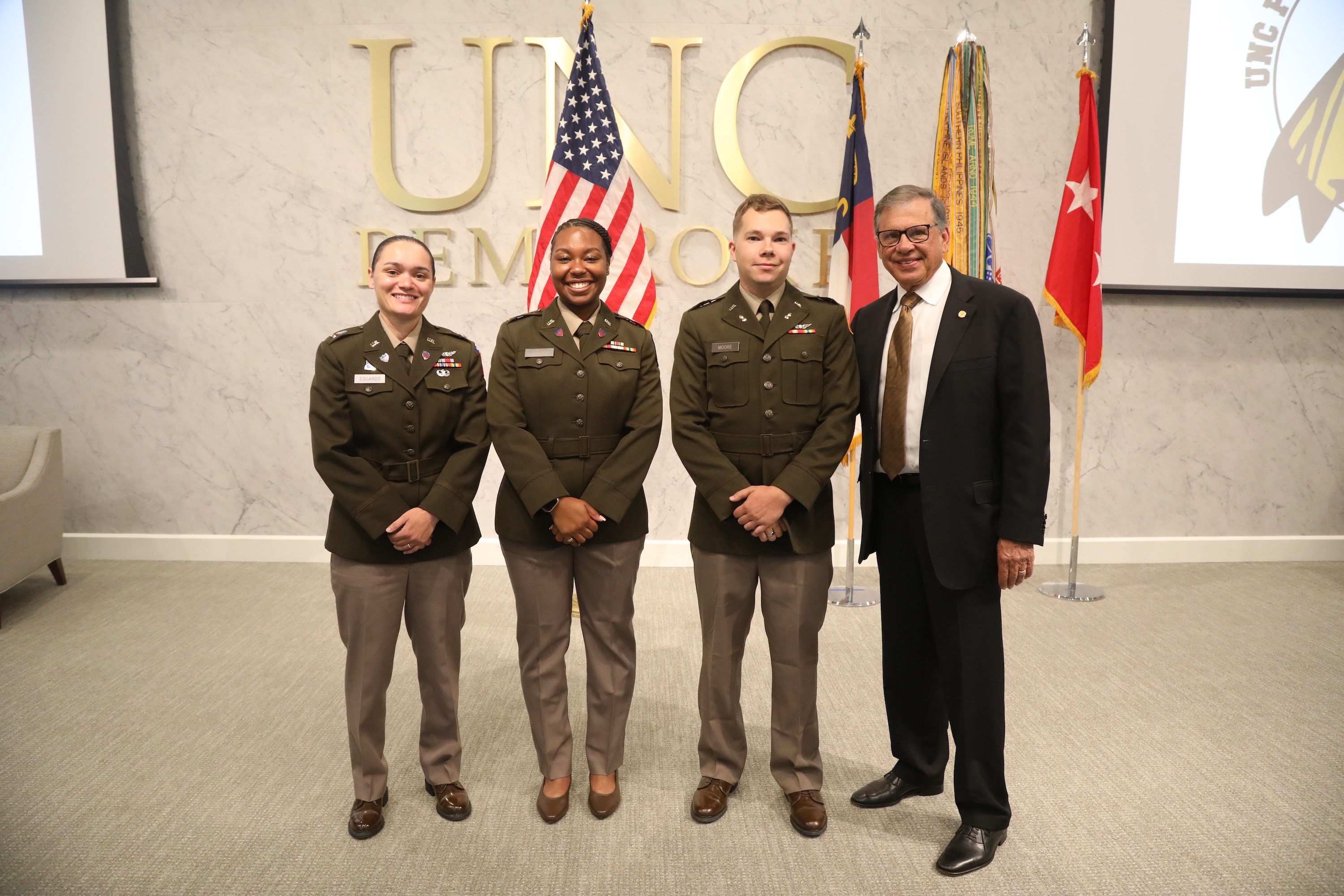
Criteria & Courses
The Army ROTC Program is of modular construction and is composed of a Basic and an Advanced Course. Enrollment in the Basic Course is open to all full-time students and it carries with it no obligation for military service. Completion of the Basic Course is a prerequisite for application to the Advanced Course. Prior military service, high school ROTC or membership in a National Guard or Reserve unit may result in direct Advanced Course placement. Entrance into the Advanced Course is selective and is based on demonstrated performance and leadership potential. Students who satisfactorily complete the Advanced Course and graduate from the university are commissioned as second lieutenants.
The Basic Course is comprised of the freshman and sophomore level classes and does not require any military obligation. At most universities, these classes are considered electives and only meet once a week for approximately 1 ½ to 2 hours. The Basic Course covers topics such as Organization of the Army; Military Traditions and Courtesies; Basic Leadership Skills; Decision Making Process; Map Reading Skills; Introduction to Small Unit Tactics; and Basic Soldier Skills. In order to enroll in the Basic Course, an individual must:
- Be a full time student at UNC Pembroke
- Not be a Conscientious Objector
- Be of Good Moral Character
- Not have any Tattoos specifically prohibited by Army policy
- Be a U.S. Citizen
- Be in good physical condition
MSC 1010. Leadership and Personal Development
MSL 1010 introduces cadets to the personal challenges and competencies that are critical
for effective leadership. Cadets learn how the personal development of life skills
such as goal setting, time management, physical fitness and stress management relate
to leadership, officership and the Army profession. Focus is placed on developing
basic knowledge and comprehension of Army Leadership Dimensions while gaining a big
picture understanding of the ROTC program, its purpose in the Army and its advantages
for the student.
MSC 1020. Introduction to Tactical Leadership
MSL 1020 overviews leadership fundamentals such as setting direction, problem-solving,
listening, presenting briefs, providing feedback and using effective writing skills.
Cadets explore dimensions of leadership values, attributes, skills and actions in
the context of practical, hands-on and interactive exercises. Continued emphasis is
placed on recruitment and retention of cadets. Cadre role models and the building
of stronger relationships among the cadets through common experience and practical
interaction are critical aspects of the MSL 1020 experience.
MSC 1800. Military Physical Training (PED 1800)
Taught by a military instructor.
MSC 2010. Foundations of Tactical Leadership
MSL 2010 explores the dimensions of creative and innovative tactical leadership strategies
and styles by studying historical case studies and engaging in interactive student
exercises. Cadets practice aspects of personal motivation and team building in the
context of planning, executing and assessing team exercises. Focus is on continued
development of the knowledge of leadership values and attributes through an understanding
of rank, uniform, customs and courtesies. Leadership case studies provide tangible
context for learning the Soldier's Creed and Warrior Ethos.
MSC 2020. Foundations of Leadership
MSL 2020 examines the challenges of leading in complex contemporary operational environments.
Dimensions of the cross-cultural challenges of leadership in a constantly changing
world are highlighted and applied to practical Army leadership tasks and situations.
Provides a smooth transition into MSL 3010. Cadets develop greater self-awareness
as they practice communication and team building skills. COE case studies give insight
into the importance and practice of teamwork and tactics in real world scenarios.
The Advanced Course is comprised of junior and senior level classes and requires students to commit to a military obligation prior to entering the course. Once enrolled in the Advance Course, Cadets participate in academic classes and leadership labs each semester and also attend a 30 day Cadet Leadership Course (CLC) located at Fort Knox, Kentucky, during the summer between their junior/senior year. In order to enroll in the Advance Course, an individual must:
- Meet all of the previous requirements to enter the Basic Course.
- Not have any civil convictions, adverse adjudications or court marshal convictions other than minor traffic violations less than $250.
- Not have more than 3 dependents.
- Never have used drugs; or be a self admitted limited/experimental user of drugs who has not used within 6 months of contracting.
- Sign a loyalty oath.
- If prior service, have an honorable discharge from the Armed Services with a qualifying RE code of 1 on DD Form 214.
- Meet one of the following criteria: have credit for MSC 1010/1020/2010/2020, complete Cadet Command's Cadet Initial Entry Training (CIET) or complete Basic Training in one of the Armed Forces.
- Have a college GPA of at least 2.5 on a 4.0 scale.
- Score at least 180 points with 60 points in each event on a single Army Physical Fitness Test.
- Successfully pass a Department of Defense Medical Evaluation Review Board physical. The most common non-waiver disqualifiers during this physical are: documented asthma after the age of 13; ADD/ADHD, depression treatment or academic skills disorders within the past 12 months; ulcerative colitis, crohn's disease, scoliosis-curvature of the spine in excess of 30 degrees or prior service with a permanent profile.
- Be younger than the age of 31 at time of commissioning without a waiver
Upon completion of the Advance Course and successful graduation from the university, Cadets receive their commission as a United States Army Officer and subsequently begin a career in either the Active Army or Reserve/National Guard.
MSC 3010. Adaptive Team Leadership
MSL 3010 challenges cadets to study, practice and evaluate adaptive leadership skills
as they are presented with the demands of the ROTC Leader Development Assessment Course
(LDAC). Challenging scenarios related to small unit tactical operations are used to
develop self-awareness and critical thinking skills. Cadets receive systematic and
specific feedback on their leadership abilities. Cadets begin to analyze and evaluate
their own leadership values, attributes, skills and actions. Primary attention is
given to preparation for LDAC and the development of leadership qualities.
MSC 3020. Applied Team Leadership
MSL 3020 uses increasingly intense situational leadership challenges to build cadet
awareness and skills in leading small units. Skills in decision-making, persuading
and motivating team members when “under-fire” are explored, evaluated and developed.
Aspects of military operations are reviewed as a means of preparing for the ROTC Leader
Development Assessment Course (LDAC). Cadets are expected to apply basic principles
of the Law of Land Warfare, Army training and motivation to troop leading procedures.
Emphasis is also placed on conducting military briefings and developing proficiency
in Garrison operations orders. MSL 3020 cadets are evaluated on what they know and
do as leaders.
MSC 4010. Adaptive Leadership
MSL 4010 develops cadet proficiency in planning, executing and assessing complex operations,
functioning as a member of a staff and providing leadership performance feedback to
subordinates. Cadets are given situational opportunities to assess risk, make ethical
decisions and provide coaching to fellow ROTC cadets. Cadets are challenged to analyze,
evaluate and instruct younger cadets. Both their classroom and battalion leadership
experiences are designed to prepare them for their first unit of assignment. Cadets
identify responsibilities of key staff, coordinate staff roles and use situational
opportunities to teach, train and develop subordinates.
MSC 4020. Leadership in a Complex World
MSL 4020 explores the dynamics of leading in the complex situations of current military
operations. Cadets examine difference in customs and courtesies, military law, principles
of war and rules of engagement in the face of international terrorism. Aspects of
interacting with non-government organizations, civilians on the battlefield and host
nation support are examined and evaluated. Significant emphasis is placed on preparing
cadets for their first unit of assignment. Case studies, scenarios and “What Now,
Lieutenant?” exercises are used to prepare cadets to face complex ethical and practical
demands of leading as commissioned officers in the United States Army.
MSC 4210. The American Military Experience (HST 4O60)
A survey of American Military History concentrating on the major factors and events
which have influenced US foreign policy during periods of war and peace.
Battalion
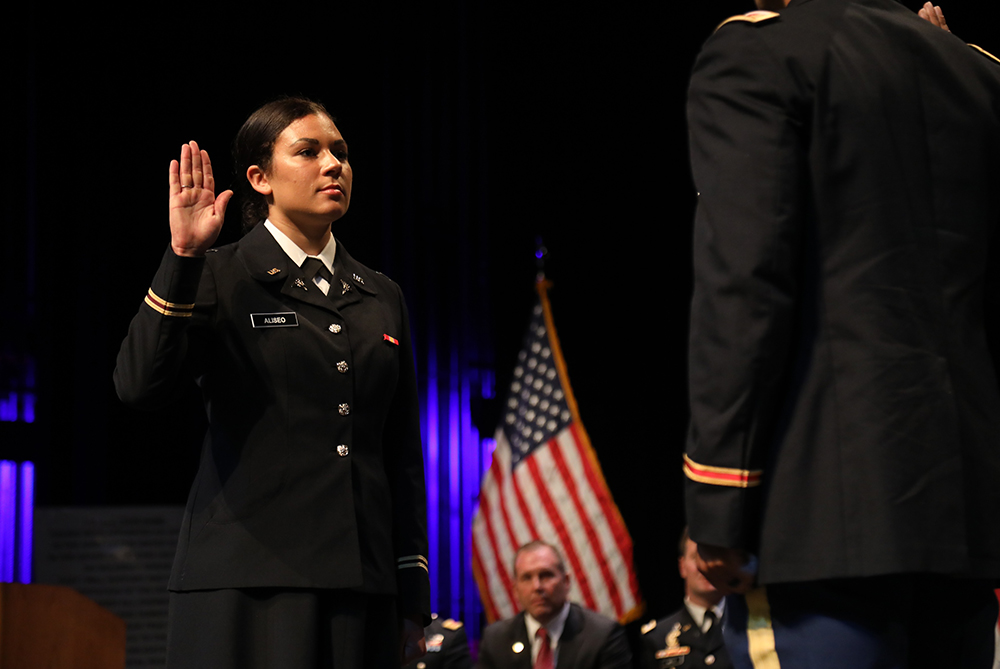
Who We Are
UNC Pembroke is part of Campbell Battalion which consists of the following schools: Campbell University, Fayetteville State University and Methodist University. Each school in Campbell Battalion has a company name. UNC Pembroke's company name is Brave Company.
Since 1972, Campbell Battalion Army ROTC has earned acclaim as one of the nation's top ROTC programs. The reason we perform so well year after year is that we continually get outstanding students like you to join our ranks. Our Reserve Officer Training Corps (ROTC) program is one of the finest in the country.
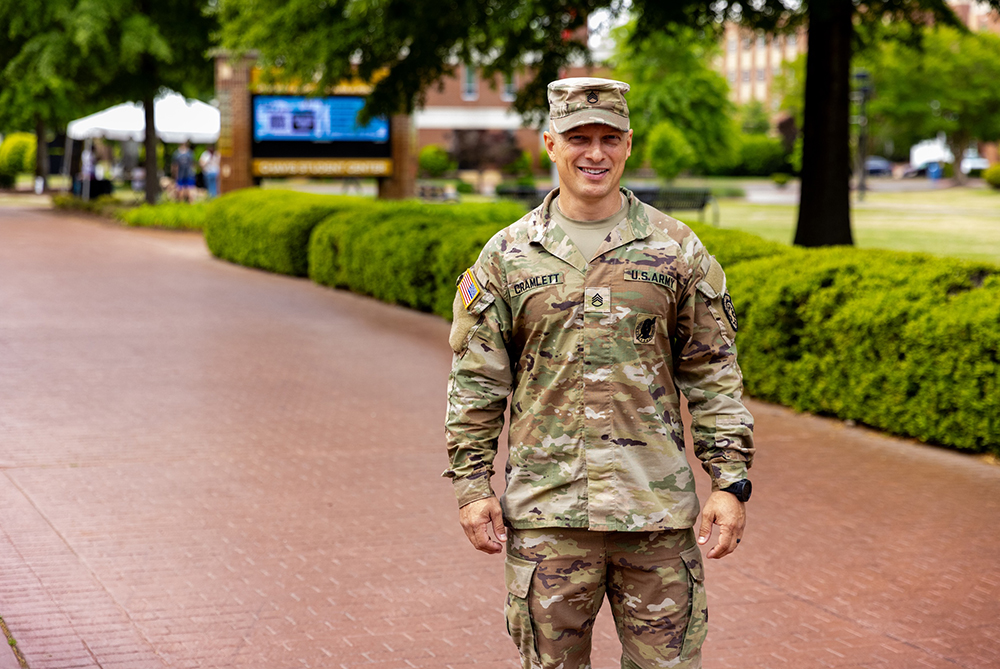
Our Vision, Your Success
The Campbell Battalion is forward-looking, battle-focused, team-oriented, continuously improving and capable of accurately assessing ourselves. We create and maintain a climate where both cadre and cadets feel as though they truly have the opportunity to “be all that they can be”. We respect and appreciate individual differences. We work smart, have fun and go home and spend quality time with our families and/or friends. Each member of this team always feels empowered to learn, grow and excel. The end state of living this vision is commissioned officers that will lead our Army with distinction and soldiers that feel proud to refer to you as “My Lieutenant”.
Cadets
All students registered for Military Science (MSCI) classes are referred to as Cadets. A Cadet is a trainee enrolled in a military officer-producing program. The ROTC program has several categories of Cadets enrolled in it: Participating Cadets, Enrolled Cadets and Contracted Cadets.
- Participating Cadets – Registered for the MSCI class through the university and responsible for attending all classroom activities.
- Enrolled Cadets – Has completed all documents listed in the ROTC Enrollment Packet. These students are eligible to attend all extracurricular activities associated with ROTC, such as physical fitness training, leadership labs and Field Training Exercises (FTX), which include rifle ranges, land navigation training, obstacle courses and leader reaction courses.
-
Contracted Cadets – These students have completed all documents listed in the ROTC Contracting Packet and have been identified as possessing the character and attributes necessary of an officer candidate. They have signed the Army enlistment contract (DD 4/1, DD 4/2) and ROTC contract (DA 597-3 or DA 597) and are working toward becoming an Army Officer upon graduating with a bachelor's or master's degree.

Creeds & History
Cadet Creed
I am an Army Cadet.
Soon I will take an oath and become an Army Officer committed to defending the values,
which make this nation great.
HONOR is my touchstone.
I understand MISSION first and PEOPLE always.
I am the PAST: the spirit of those WARRIORS who have made the final sacrifice.
I am the PRESENT: the scholar and apprentice soldier enhancing my skills in the science
of warfare and the art of leadership.
But, above all, I am the FUTURE: the future WARRIOR LEADER of the United States Army.
May God give me the compassion and judgment to lead and the gallantry to WIN.
I WILL do my duty.
Soldier's Creed
I am an American Soldier.
I am a Warrior and a member of a team. I serve the people of the United States and
live the Army Values.
I will always place the mission first.
I will never accept defeat.
I will never quit.
I will never leave a fallen comrade.
I am disciplined, physically and mentally tough, trained and proficient in my warrior
tasks and drills.
I always maintain my arms, my equipment and myself.
I am an expert and I am a professional.
I stand ready to deploy, engage and destroy, the enemies of the United States of America
in close combat.
I am a guardian of freedom and the American way of life.
I am an American Soldier.
ROTC had its beginnings in the 19th century, when a handful of colleges offered military instruction to students. By the time the Civil War began, everyone could see the need to develop a source of military leaders and the college campus was a logical place to find those who could qualify.
In 1862, the Land Grant Act was passed authorizing grants of public land to state colleges that offered military training for all able bodied male students. As a result of the legislation, 105 colleges and universities were offering military instruction by the early 1900's. But as our nation became increasingly involved in international affairs, the need for a reserve corps of training military officers was more apparent.
In 1916, Congress recognized the need for an expanded military reserve to supplement the National Guard, and it passed the National Defense Act. The National Defense Act provided for the establishment of the Officers' Reserve Corps, to be composed of men trained in ROTC and in Army training camps. These officers not only served in World War I, but also went on to form the basis of the Officers' Reserve Corps in the 1930s.
Consequently, when World War II broke out, ROTC was able to provide the necessary military leadership required for the Army to mobilize. Within six months after the attack on Pearl Harbor, more than 56,000 Army ROTC officers were serving on active duty. By the end of the war, more than 100,000 ROTC officers had served our country.
Later, in Korea and Vietnam, Army ROTC graduates reaffirmed our national commitments to a defense force, led in a large part by citizen soldiers who had been prepared for leadership campuses of our colleges and universities. Because of the critical role played Army ROTC during these periods of conflict, Congress added additional strength to the program with the passage of the ROTC Vitalization Act of 1964.
The act provided for the establishment of Army ROTC scholarships, the creation of the two-year program and the increase in the amount of money ROTC students receive. These additional incentives stimulates enrollment in the program and introduced the rewards of military life to thousands of qualified young students.
Opportunities
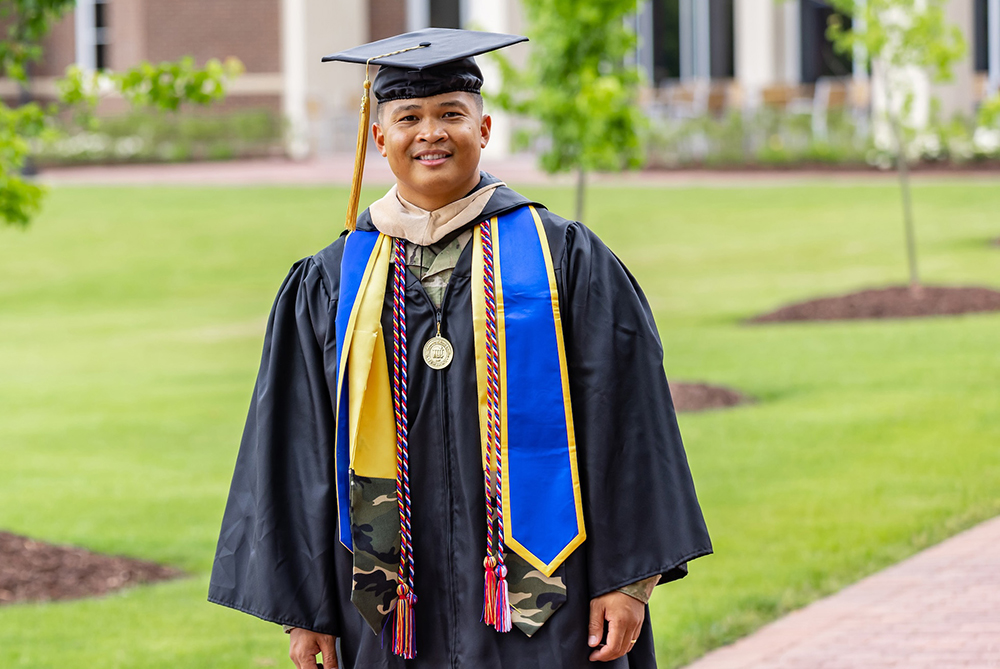
Green to Gold
UNCP's Green to Gold program empowers enlisted soldiers to transform into commissioned Army officers by pursuing a bachelor's or graduate degree through ROTC. Whether via scholarship, active-duty transfer or a non‑scholarship path, participants receive strong financial support — including tuition coverage, stipends and continued benefits — to help them graduate ready to lead.
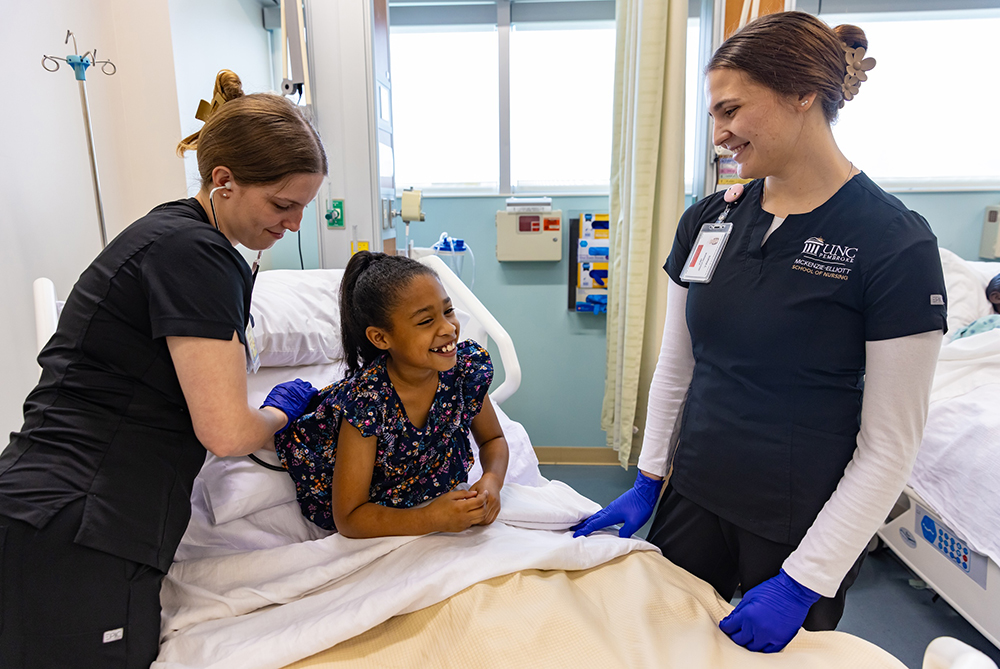
Nursing Program
If nursing is your goal, Army ROTC offers a powerful path forward — combining hands-on leadership training with financial support and real-world experience. ROTC nurse cadets can compete for scholarships, gain valuable summer clinical experience and prepare to commission as officers in the Army Nurse Corps after graduation. You'll build confidence, develop leadership skills and launch your nursing career with a strong foundation for success — whether in the Army or civilian healthcare.
“Nursing and ROTC are big on leadership. Being a good leader means you are a good follower. It’s not about being the most outspoken person in the room. It’s leading from the front and setting a good example.”
FAQs
No. Students who enroll in ROTC don't join the Army. They take an ROTC class for which they receive credit. It's considered a college elective.
No. ROTC cadets go directly to college where they earn their degree.
Students in ROTC learn through a unique program that involves both classroom and \"live\" situations. For instance, an ROTC cadet might be found leading classmates through adventure training, down a river in a raft or up a mountain wall.
Have Questions?
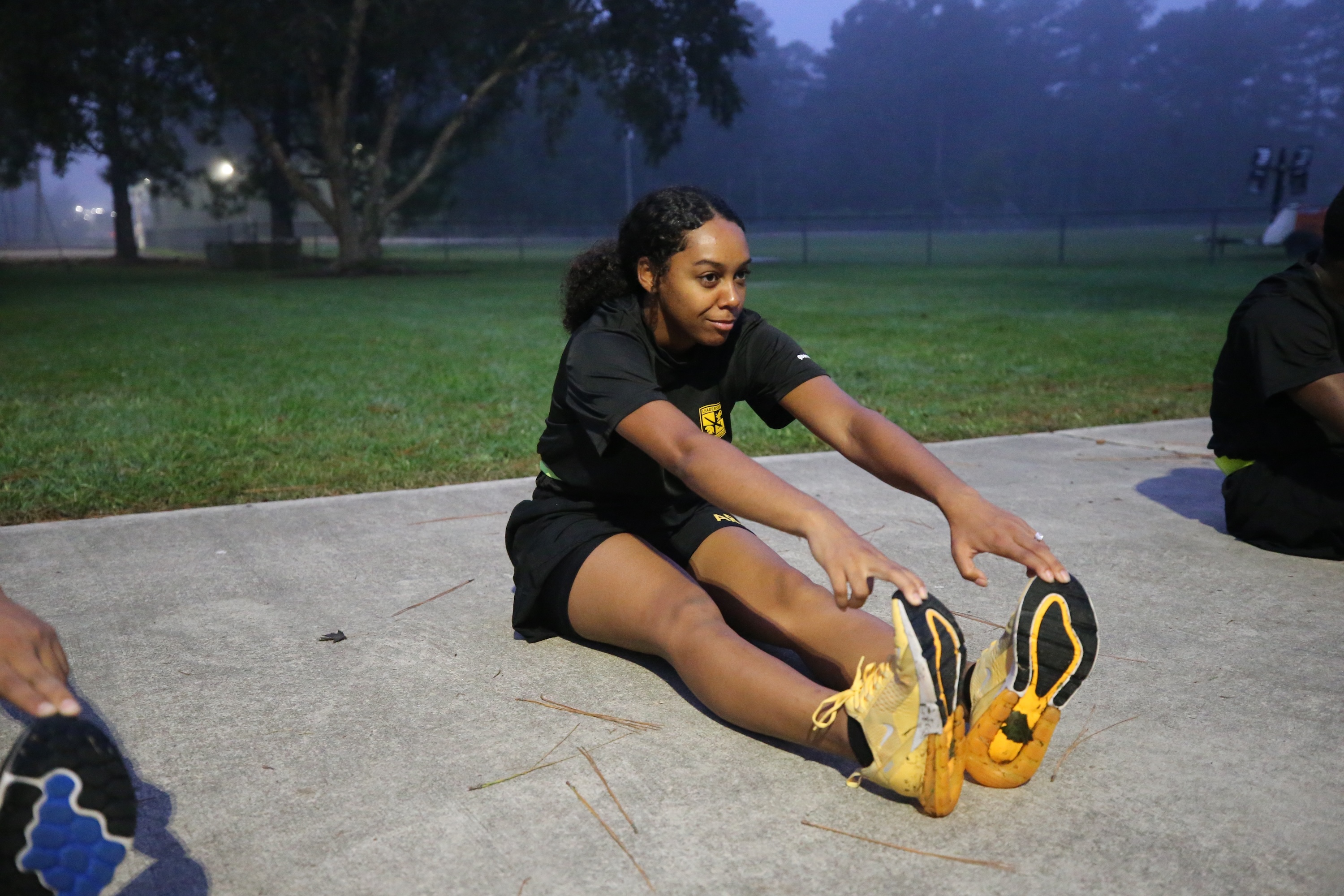
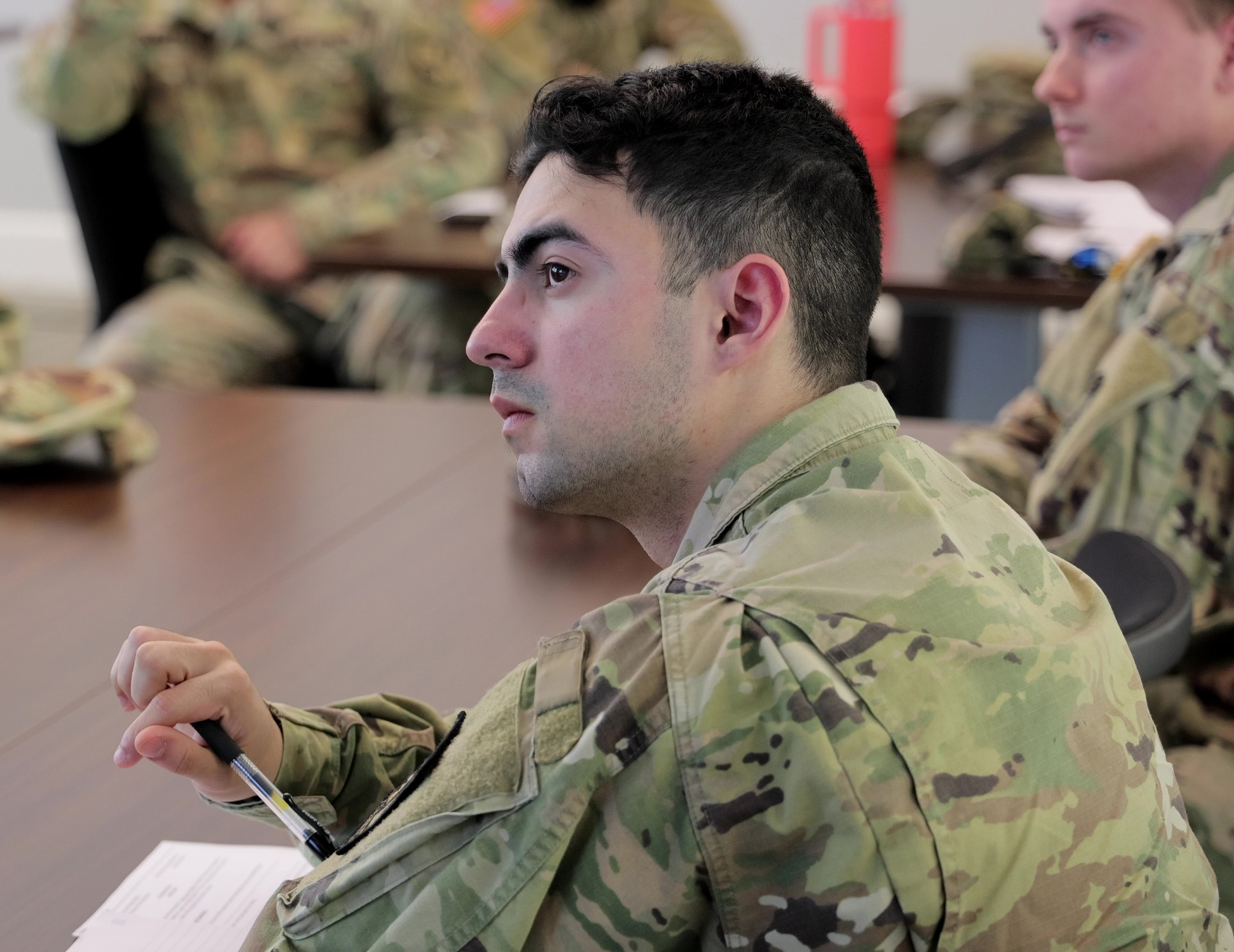
Featured News
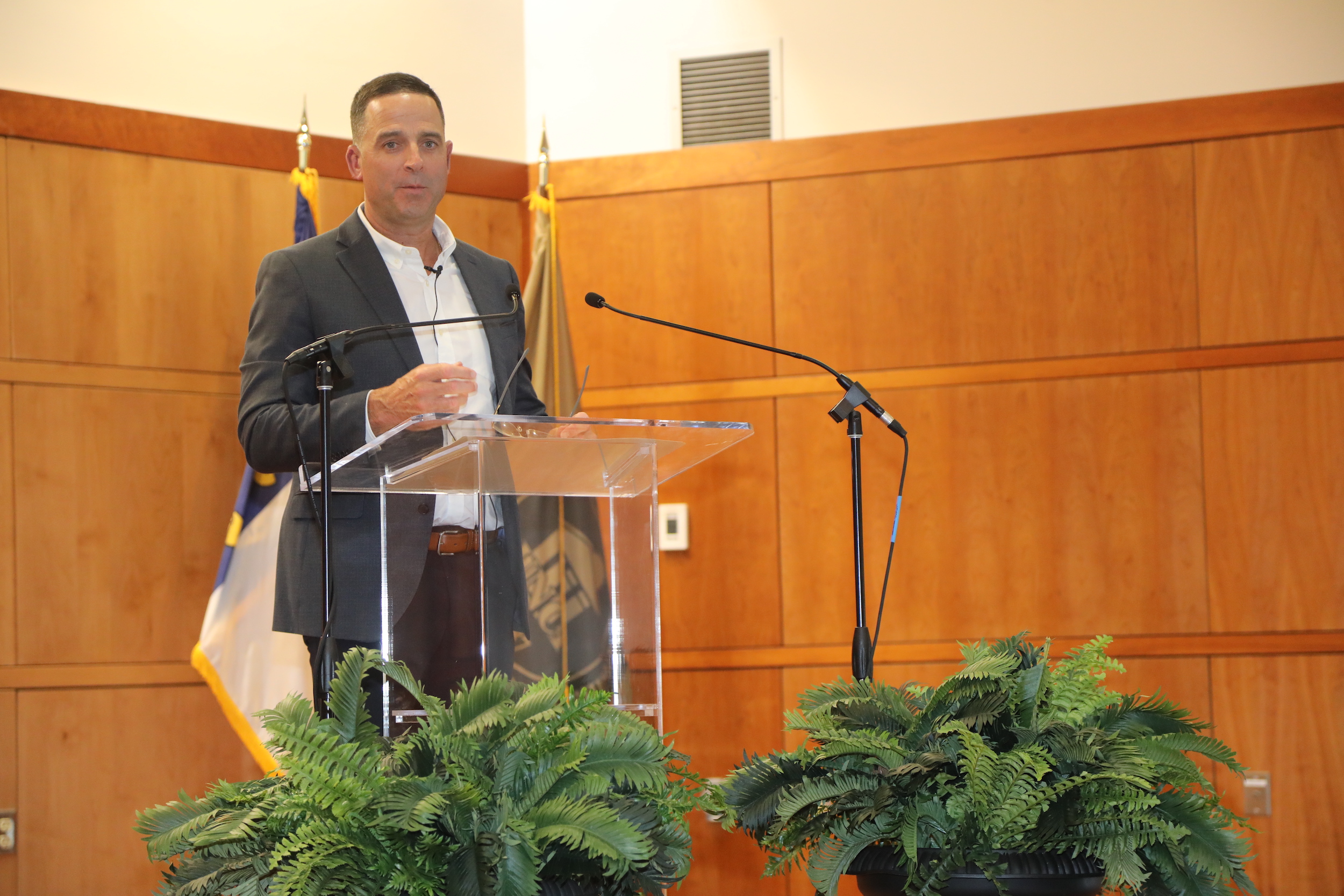
A Farm-Grown Work Ethic Powers Chad Mixon’s Military Success
During his time as the senior instructor for the Army ROTC program at UNC Pembroke, Sgt. Johnny Torre saw countless future leaders and standout cadets come through the program.
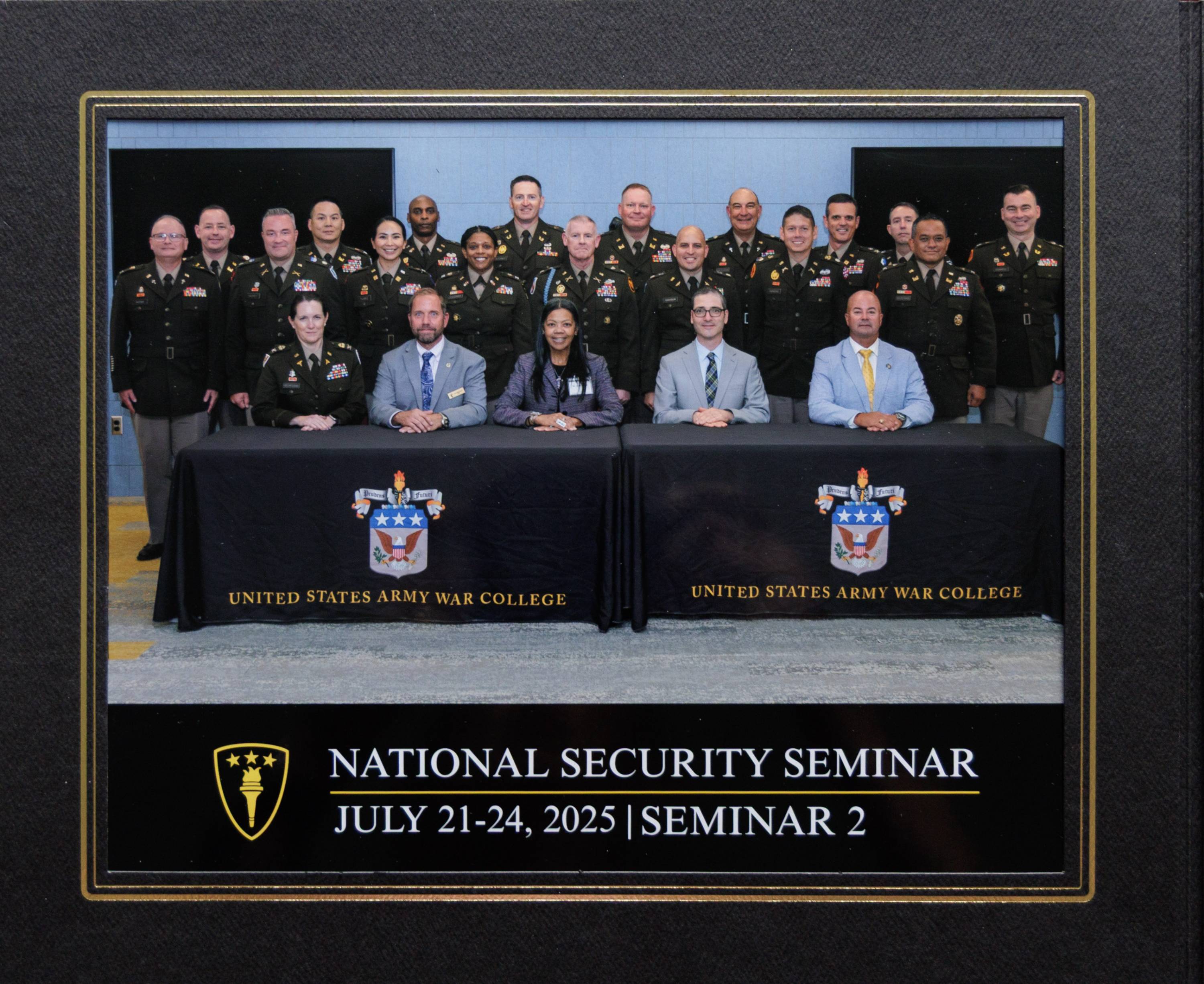
Chief Audit Officer Selected for Prestigious U.S. Army War College National Security Seminar
Carla Jacobs, chief audit officer at UNC Pembroke, was among a select group of civilian leaders invited to participate in the U.S. Army War College’s 2025 National Security Seminar in Carlisle, Pa.
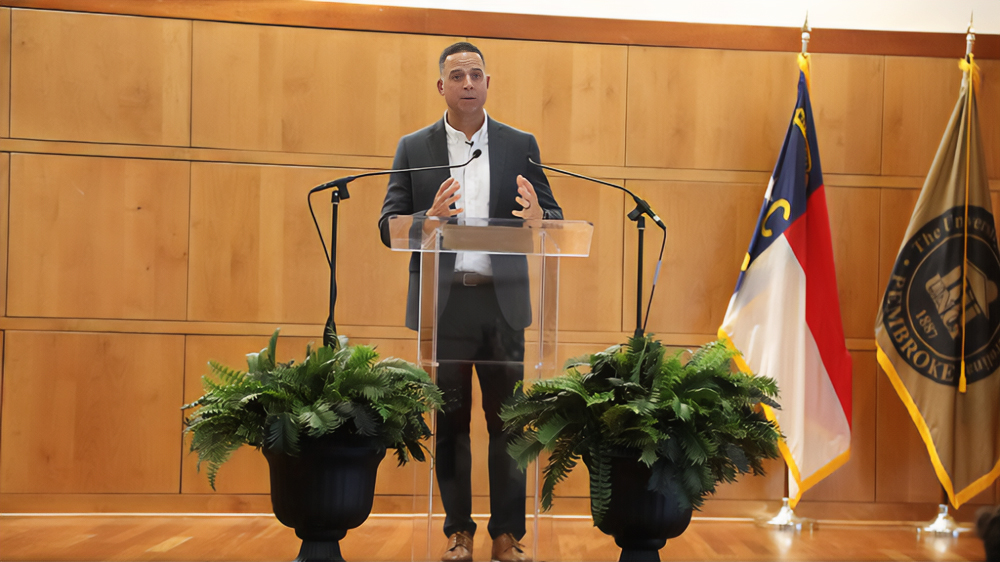
From Cadet to Commander: Col. Chad Mixon Inspires the Next Generation
As garrison commander of Fort Bragg – the largest military installation in the world - Col. Chad Mixon oversees operations that impact more than 264,000 people. But this spring, his mission brought him home to UNC Pembroke, where his journey as a leader began.